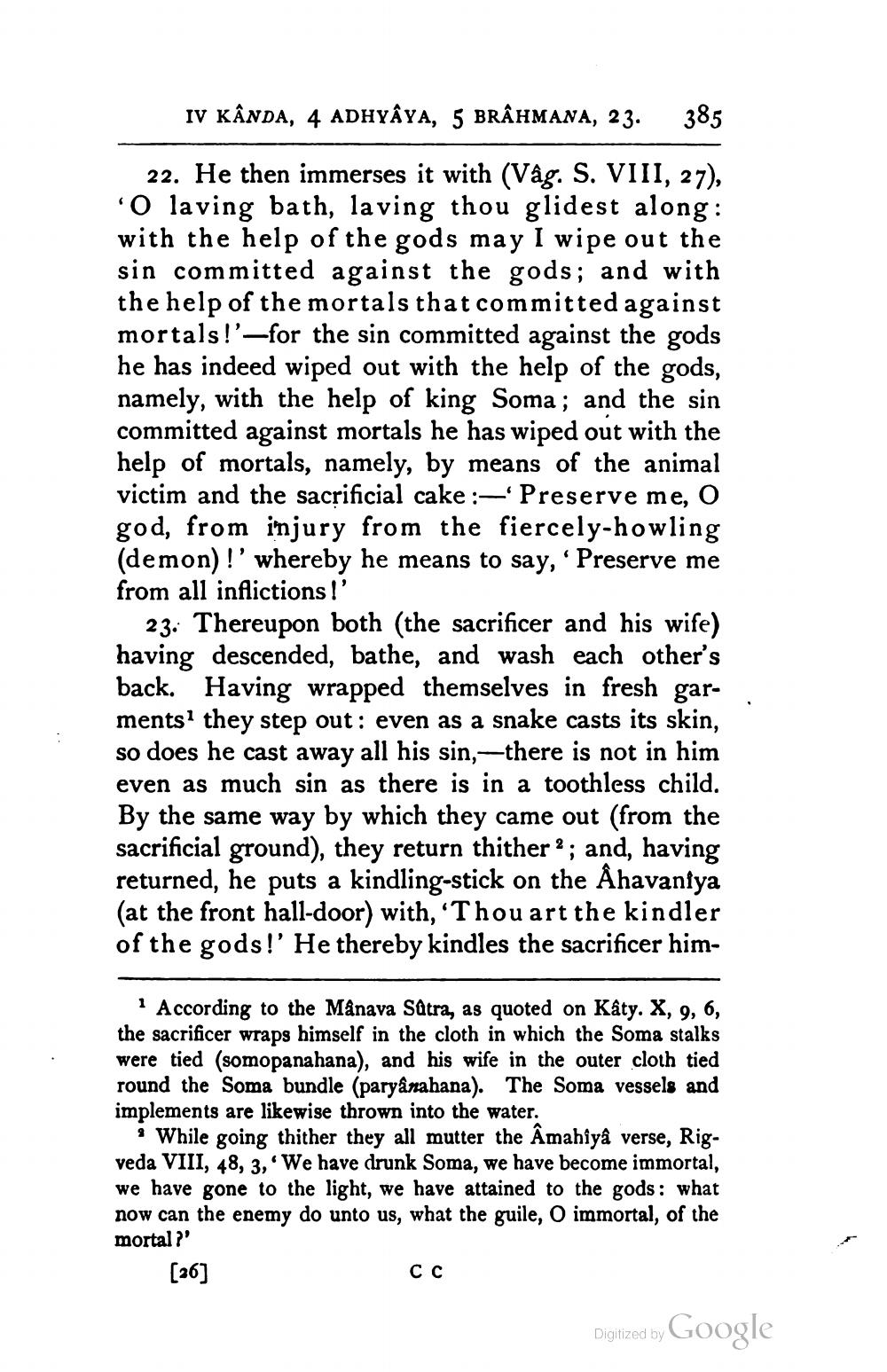________________
IV KÂNDA, 4 ADHYAYA, 5 BRAHMANA, 23.
385
22. He then immerses it with (Vâg. S. VIII, 27), Olaving bath, laving thou glidest along: with the help of the gods may I wipe out the sin committed against the gods; and with the help of the mortals that committed against mortals!'--for the sin committed against the gods he has indeed wiped out with the help of the gods, namely, with the help of king Soma; and the sin committed against mortals he has wiped out with the help of mortals, namely, by means of the animal victim and the sacrificial cake :—Preserve me, O god, from injury from the fiercely-howling (demon)!' whereby he means to say, ' Preserve me from all inflictions!'
23. Thereupon both (the sacrificer and his wife) having descended, bathe, and wash each other's back. Having wrapped themselves in fresh garments? they step out: even as a snake casts its skin, so does he cast away all his sin,—there is not in him even as much sin as there is in a toothless child. By the same way by which they came out (from the sacrificial ground), they return thither ? ; and, having returned, he puts a kindling-stick on the Ahavaniya (at the front hall-door) with, Thou art the kindler of the gods!' He thereby kindles the sacrificer him
According to the Månava Satra, as quoted on Kâty. X, 9, 6, the sacrificer wraps himself in the cloth in which the Soma stalks were tied (somopanahana), and his wife in the outer cloth tied round the Soma bundle (paryanahana). The Soma vessels and implements are likewise thrown into the water.
While going thither they all mutter the Amahiya verse, Rigveda VIII, 48, 3, 'We have drunk Soma, we have become immortal, we have gone to the light, we have attained to the gods: what now can the enemy do unto us, what the guile, O immortal, of the mortal?' [26]
сс
Digitized by Google




